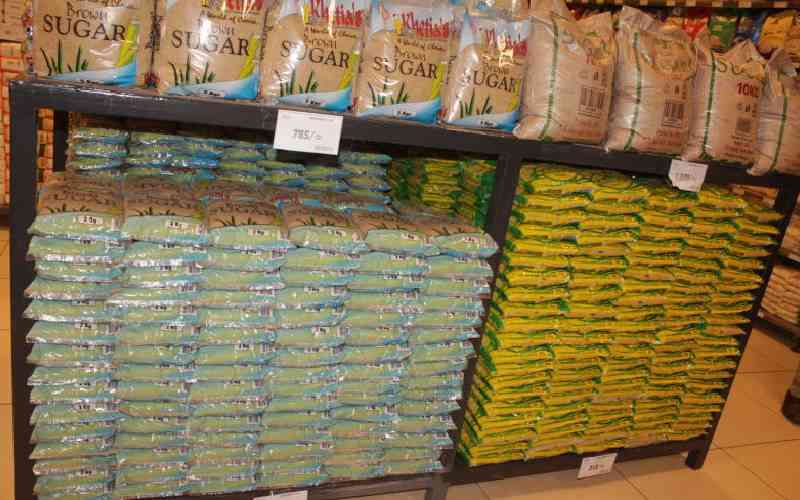New sugar levy leaves bitter taste for households as prices to go up
Business
By
Brian Ngugi
| Jan 16, 2025

Kenyan households are bracing for an increase in sugar prices as a new levy, instituted under the recently passed Sugar Act, takes effect on February 1.
The Sugar Development Levy, set at four per cent of the value for domestic sugar and the cost, insurance, and freight (CIF) value for imported sugar, has raised concerns among consumers and industry stakeholders alike.
The levy implementation from next month announced by Agriculture Cabinet Secretary Aden Duale aims to fund the Kenya Sugar Board and support local sugar production.
However, many fear that the financial burden will fall squarely on consumers, who are already grappling with rising costs of living.
READ MORE
Why devolution still work in progress over a decade on
Devolution scorecard: The sectors driving counties
From Mukuru slums to global success: How Dennis Maina built digital marketing firm
Commodity prices to increase as KPA reviews tariffs
Court directs CA to determine Safaricom's Lipa na M-Pesa case
Inside William Ruto's plans to revive sugar industry
Kenya credit rating upgrade set to boost Treasury debt strategy
Firms must seek to promote sustainable societal change
Tourism board bets on groups, high-end Indian travellers to boost revenue
Food authority banks on market access to strengthen agricultural sector
The Sugar Development Levy Order, 2025 imposes a levy of four per cent on the value of both domestically produced and imported sugar.
The levy is aimed at funding the revitalisation of the ailing sugar industry.
However, consumer groups and opposition politicians have criticised the levy, arguing that it will disproportionately burden low-income households already struggling with high prices.
They contend that the government should focus on addressing the root causes of the sugar industry’s problems, such as inefficient production and smuggling, rather than passing the cost onto consumers. “This levy is nothing more than a tax on the poor,” said Independent economist Ian Njoroge. “While the sugar industry needs support, burdening consumers with this additional cost is unfair and unsustainable.”
The sugar industry in Kenya has been facing numerous challenges, including declining production, competition from cheap imports, and high production costs. The government hopes that the levy will generate funds for research and development, improve infrastructure, and support farmers, thereby boosting domestic production and reducing reliance on imports.
The Sugar Board will be responsible for collecting the levy, which must be remitted by the tenth of each month.
The funds collected will be used to support various initiatives aimed at revitalising the sugar sector, such as improving cane farming practices, modernising sugar factories, and combating smuggling.
Despite the concerns raised by consumer groups, the government is pressing on with the implementation of the levy. Officials argue that the levy is necessary to ensure the long-term sustainability of the sugar industry, which plays a crucial role in the economy. However, the impact of the levy on consumer prices remains to be seen. Retailers and consumer groups are concerned that the levy will lead to a significant increase in the price of sugar, further squeezing household budgets.
The government justifies the levy as a necessary measure to bolster the struggling sugar industry, which has faced challenges from cheap imports and inefficiencies in local production.
The Kenya Sugar Board argues that the funds generated from the levy will be reinvested into the sector to promote sustainability, improve infrastructure, and ultimately increase local sugar output.

